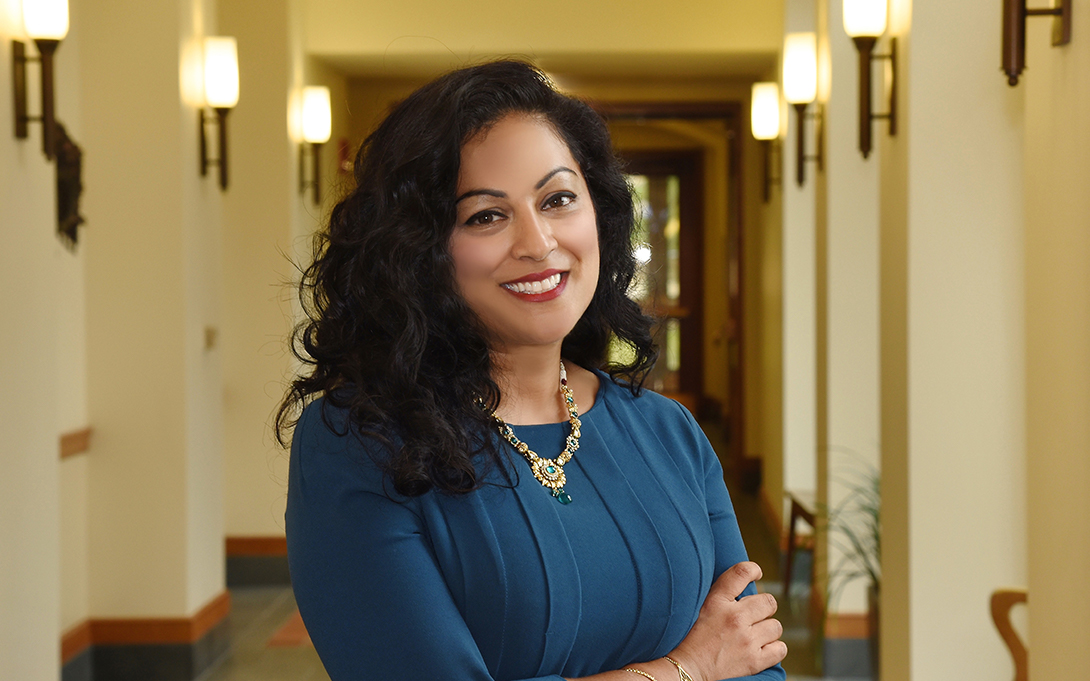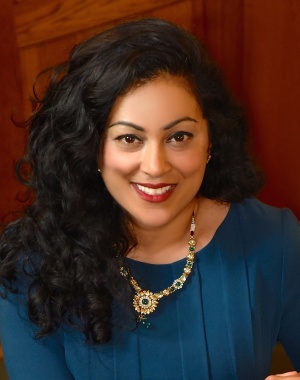
Artificial intelligence is often debated in terms of being a cure-all or chaos agent, as if independent of its human creators. Neither is the case, nor should we forget who makes it and why, and how it should serve humanity.
That's the backbone of the latest episode of Business & Society, in which two University of Michigan professors explore AI through their research and engagement in and outside the classroom.
M.S. Krishnan of the Ross School of Business and Shobita Parthasarathy of the Ford School of Public Policy discuss opportunities AI brings to the business world, as well as some of the challenges and functions in which AI needs guardrails. They share insights on interacting with AI critically and with personal responsibility in a world where its widespread adoption is well underway.
_______________________________________________________________________________________
"We are sort of in a space where, on the one hand, you do have a handful of companies that are making choices," Parthasarathy said. "These tend to be—sorry to be blunt about it—not choices that are necessarily for the good of labor, but at the same time, they're being discussed as though it's an independent technological momentum and not decisions that are being made by people with certain kinds of interests in, sort of expanding, obviously, their revenues.
"And so what I would say is how do we make sure that the AI doesn't destroy labor or that it actually benefits labor? As I've been saying, the first thing is to actually ask people. There are places where I think AI can be useful to people. There are places where it's likely to be not so useful to people.
"I think bringing users into the conversation, bringing laborers of different kinds into the conversation will be useful. There are going to be places where laborers will say, this kind of work, detonating a mine might not be the kind of thing I want to do anymore. It's too dangerous. I would rather have an AI do it."
Contact: [email protected]
_______________________________________________________________________________________
"We need to build leaders who actually know how to use this technology effectively and responsibly, and that's exactly what I think that's our job as an institution to do that," Krishnan said. "Certainly guardrails are important and AI is moving very fast—there's no doubt about it. At the same time, we have a collective responsibility.
"But I've been teaching this course for more than two decades now on technology and business. And what comes to my mind is 20 years back, I used to ask my students in my class, 'How many of you are not comfortable sharing your credit card over the internet?' And a good 70% to 80% of them will raise their hands. If I ask the same question today, they will look at me.
"Why am I asking that question? So, what has happened? The technology has evolved. Have there been data breaches? Absolutely. Did we have consequences? Absolutely. There were some guardrails. We will take deviations, but I think we are not going to go back and do business the way we did. That's my point of view."
Contact: [email protected]
_______________________________________________________________________________________
Business & Society is co-produced by JT Godfrey of the Ross School of Business and Jeff Karoub of Michigan News. The audio engineer is Jonah Brockman and editorial production is provided by Mads Henke. Listen to all episodes of the podcast.
